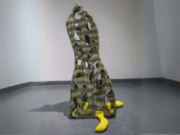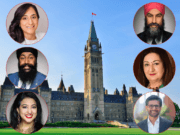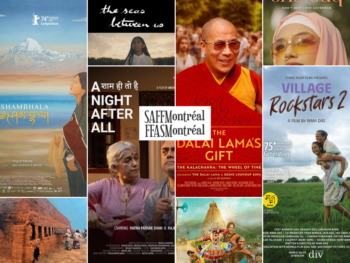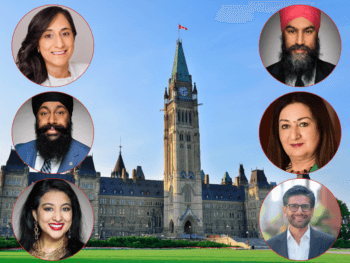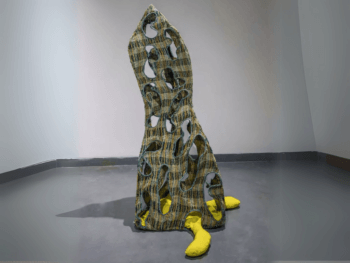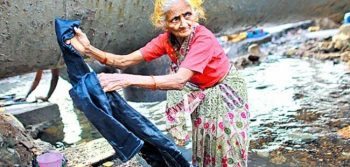
We are supposed to take care of our elders. However, disturbingly, there are more and more stories where they are simply being abused. By us.
We desire a happy, secure and healthy old age but the reality of aging in more grim than our hopes. Elder abuse is a series of intentional actions that cause harm or create a serious risk of harm to a vulnerable senior, as defined by America's National Center on Elder Abuse.
Elder abuse is a hidden epidemic, says Margaret Macpherson of Western University as it goes unreported largely. According to United Nations, four to six per cent of the world’s elderly population has experienced some form of abuse. Of those surveyed, nine per cent had been physically assaulted or harassed, 13 per cent had been denied basic needs, 13per cent had faced mental torture and 20 per cent had faced restrictions on social life. In India, the statistics are equally appalling. In a study by Helpage India, it was learnt that one in five elders experienced some kind of abuse. To add, 98 per cent of them do not file a complaint. AgeWell Foundation revealed that the complaints were directed to them from grandchildren and neighbours.
There are several forms of abuse. The World Health Organization’s report on Missing Voices stated six key categories of elder abuse: structural and societal abuse, neglect and abandonment, disrespect and ageist attitudes, psychological, emotional and verbal abuse, physical abuse and legal and financial abuse. According to Richard Cordray, director of the federal Consumer Financial Protection Bureau (United States), who has identified elder abuse as “the signature crime of the 21st century” financial exploitation is the most common form of abuse.
The study by Helpage India identified the same in India, listing economic dependence as the primary reason for abuse and the city of Bengaluru with the most cases of elder abuse. An article published in Hindustan Times cites several stories of financial abuse. Ramiah, who lives in Bengaluru, earns income through renting out his home but his son and daughter-in-law harass him for this money.
Likewise, Uma who lives in the same area, receives income from her late husband's pension but her son took it away from her each month, forcing her to leave home. The recent story of the 49-year old caregiver Antonette Dizon from Burnaby, Canada allegedly stealing $270,000 from an elder couple at Home Care Assistance, is another stark example of financial abuse.
Abuse mostly takes place at homes, contrary to the popular perception of abusive nursing homes. Ninety per cent of elder abuse cases are perpetrated by family members, according to the University of Southern California’s National Center on Elder Abuse. Seniors succumb to silence out of shame, fear or protectiveness towards the loved one who is hurting them.
In India, even when the video of a 60-year old daughter beating up her 85-year old mother went viral, the mother did not give any statement to the police. They live in Delhi's Kalkaji region and the video was uploaded by a neighbour, Preetpal Singh. The dispute was about food but neighbours claimed that it was an everyday story.

Photo Credit: www.huffingtonpost.in
Caregiving can be laborious, creating anxiety and pressures. Often the cause for this is lack of proper training given to caregivers. The University of California’s Centre of Excellence on Elder Abuse and Neglect reported 47 per cent of dementia caregivers mistreated their loved ones.
Needless to say, elder abuse has severe health implications. It triples the risk of premature death. Victims are also three times more likely to be admitted to hospital.
One way forward to this growing problem is an active involvement from members of society in creating awareness and reporting abuse incidents. This requires a more vigilant public which can recognize signs of abuse such as physical injuries, behavioral changes and unusual financial transactions. It is important to exercise prudence in assessing the situation. The second step would be figuring out the local services in the area to offer support to the victim. Adult Protective Services with many local offices, is the go-to spot for reporting abuse in United States.
Patients are less likely to prevent abuse, however, Dr. Janice Du Mont from Women’s College Hospital in Toronto, encourages adults to plan ahead by having a will and power of attorney designating the type of care and caregivers they would want if they are unable to decide later. They should also be careful about their living situations and banking information. She insists policy makers, program developers and practitioners pay more attention to the prevention of elder abuse.
Social activism is on the rise to create awareness on this subject. Macpherson’s It’s Not Right Campaign encourages the community to be involved in protecting senior members. Terry Fulmer, from the John A. Hartford Foundation, too, recommends an interdisciplinary approach in addressing elder abuse involving support from nurses, physicians, rehab therapists, social workers, health services, community practitioners and so on.

Photo Credit: trauma.blog.yorku.ca
Training for caregivers is another step to alleviate the issue. Programs like Powerful Tools for Caregivers and Next Step in Care are valuable resources. Helpage India’s report recommended nationwide programs in schools and colleges to sensitize society towards seniors.
Bills like the CARE Act also help ensure a smooth and safe caregiving process. Ajay Verma, Delhi’s High Court lawyer stated that laws protecting elders are not promoted widely and elders remain largely unware about them. The National Policy on Older Persons promotes family values through its programs to discourage elder abuse.
In the past twenty years, there has been an increased scientific study on elder abuse. An ongoing research in this direction should certainly help. Funding for research remains low in comparison to the much larger allocation for abuse against women, according to an analysis by XinQi Dong in 2013.
Lastly, days like World Elder Abuse Awareness Day and International Day of Older Persons are important to raise awareness on elder abuse.
Main Image Photo Credit: www.hindustantimes.com
Sonia Malik
Author
Sonia writes on current affairs and pop culture. An English graduate from the University of Toronto, she identifies as a global citizen, feminist and nature lover. She will be ready to shake a leg to a peppy Bollywood beat any day.


















